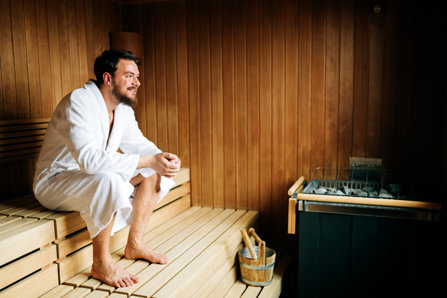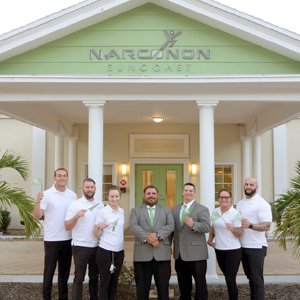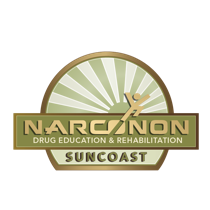What’s the Solution to Addiction?

With so many modalities offering a solution to addiction, how is family to choose the one that will give their loved one the best chance of long-term success? Nothing is more devastating than when a family finds a loved one overdosed in their car or gets a call that they’ve been arrested or walks in on them shooting up in the bathroom. During these situations, families scramble to do everything they can to help their loved one… fast. It’s a life and death situation and hey, Bob and Judy’s kid went to that detox up the street, so that must be the best place, right?
There are 3 primary ways to deal with addiction.
Handle the Physical Addiction First
Before any counseling can be done with an addict, the physical addiction needs to be addressed. First, an addict needs to get through the acute withdrawal from the drug they have been using. After the initial detox, there is more work to be done.
Most people believe once the withdrawals go away, a person is no longer physically addicted to drugs, which is not true. The way the human body works is that toxins, whether they be drugs, medications, environmental toxins, food preservatives, etc., get sequestered into the fatty tissue so they cannot harm the rest of the body. After using drugs for years, a person builds up large amounts of drug residues and metabolites in their fatty tissue. When that person tries to get sober, they still feel the effects of having taken drugs for a long time since they are stored in their body.

This causes a person to feel physically and mentally unwell, have anxiety, depression, low energy, insomnia and most troubling, severe drug cravings. Whenever an addict quits drugs, those drugs still lodged in their fat cells are unleashed back into their system anytime they burn fat, which is basically every time their heart rate increases. When those released residues hit the brain, they commonly cause tremendous cravings.
In other modalities of drug rehabilitation, this physical and mental/emotional discomfort is called PAWS or “post-acute withdrawal syndrome.” Despite what some treatment centers state, it is completely avoidable. The solution is to find a program with a strategy for removing these drug residues, allowing an addict to be freed from the physical effects of having taken drugs which also restores their physical health and relieves them of cravings.
Life Skills
One thing most addicts lack is the ability to deal with life and life’s problems without the use of drugs. At one point or another, the drug or alcohol solved a problem, something that otherwise seemed unsolvable. This solution “makes the problem go away” even if only temporarily. When the same problem comes up again, the person who continues to solve it using drugs or alcohol as an escape is on their way to being an addict. And at the end of the day when it is the heroin or alcohol they use for comfort, they have succumbed to their addiction.
Those who do not develop an addiction learn valuable life skills as they solve those inevitable life problems. They learn about who to surround themselves with in order to be as happy and successful as possible. They learn the tools they need to be a success in life and they take responsibility for the decisions they make along the way.
Addicts don’t have the luxury of knowing (or if they do know, they do not apply) these important skills. While they might have picked up some life skills here and there, they go out the window almost immediately… especially if doing the right thing gets in the way of their being able to get high.
Giving an addict life skills is extremely important when attempting to solve an addiction. Remember, the only life skills an addict uses on a daily basis are lying, cheating, stealing, manipulating and whatever else they have to do to get their fix. Those are their life skills, even though they are completely destructive. Addicts, after being relieved of their physical addiction, need to be taught how to live life again as a constructive member of society. Without these skills, all that’s created is a drug-free person who is lost in the sea of life, floating through a storm with no way to deal with it.
Intensive One-On-One Counseling

One thing overlooked in certain types of treatment is the necessity for intensive one-on-one counseling. Some treatment centers offer very little one-on-one counseling and put an emphasis on group therapy. Group therapy is conducted in a large room with a group of addicts. The group is run by a counselor and participants are expected to discuss their inner-most secrets, problems and insecurities in the middle of a large group.
The problem with this is many addicts deal with shameful and sometimes embarrassing situations and circumstances many of them don’t feel comfortable discussing in private counseling and especially in the middle of a large group. This results in an addict never fully opening up and dealing with their issues.
Emphasis needs to be placed on one-on-one counseling, not group therapy. The objective of the counseling should be to get to the core root of a person’s addiction and help them to figure out why drugs or alcohol became a solution to their problems. After a person’s real, core issues are handled, they no longer have a problem that needs to be solved by using drugs. The counselor helps them to deal with their issue(s) so the addict finally resolves them and can move forward in life.
A big part of the counseling is having a person who has first-hand experience with addiction to counsel the addict. Addicts are more likely to listen to someone who has actually been through addiction, knows what it feels like to shoot dope, but also knows what it takes to get clean and stay clean, rather than a counselor who read about addiction in a textbook, took a course, and passed a state licensure exam yet who has no real reality on addiction.
Addiction is a huge societal problem our world is currently facing. The opiate epidemic is out of control and better forms of drug addiction treatment are necessary to combat this growing problem. There are tried and true means of dealing with addiction that have been around for a long time, but with the growing numbers of addicts, the high concentration of strong drugs, and methadone clinics bursting at the seams with new patients, alternatives to the traditional way of dealing with addiction have become a necessity.
The best way to solve an addiction is a multi-pronged approach which includes handling the physical addiction, giving the addict the life skills they need to deal with life and life’s problems effectively, and utilizing one-on-one counseling as a means of getting to the root cause of a person’s addiction and helping to fully handle it so they can lead long, productive lives.


